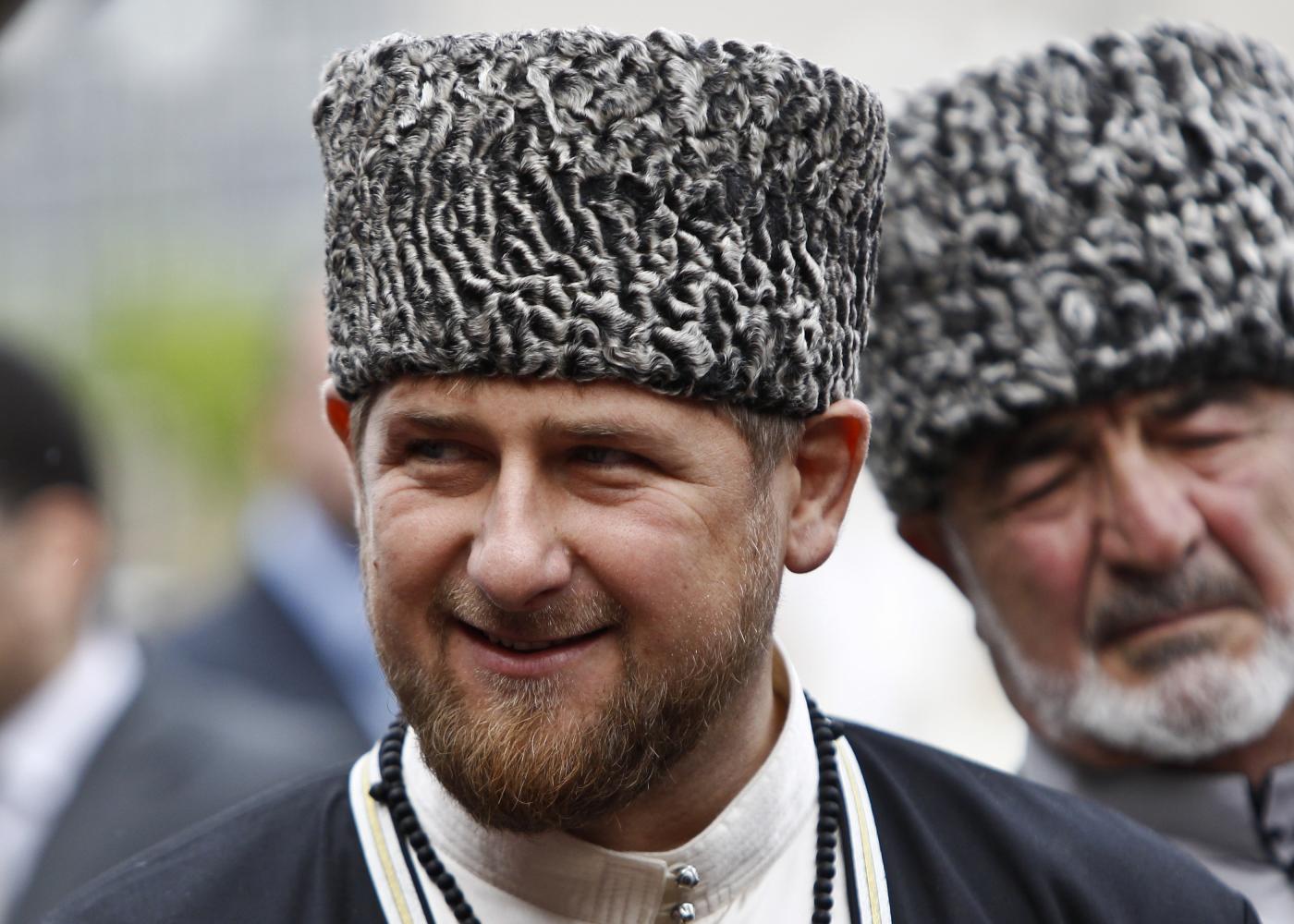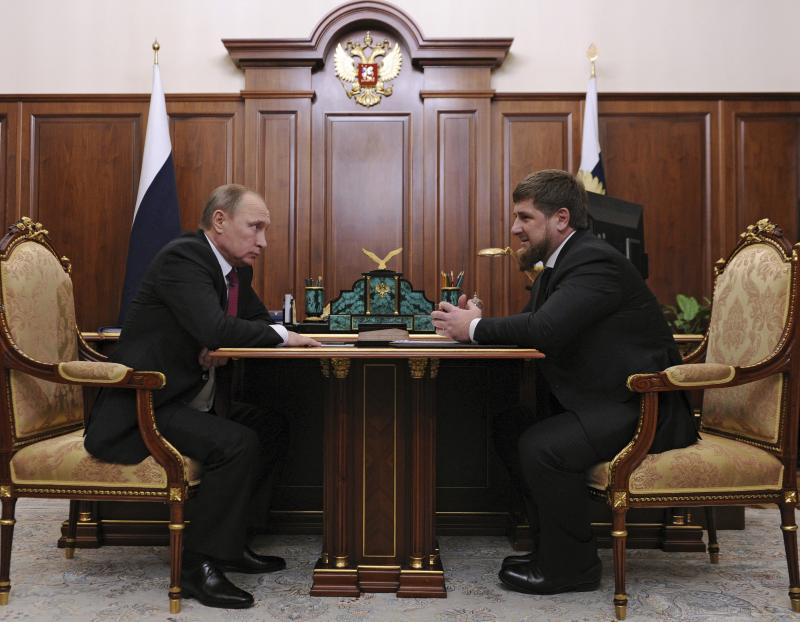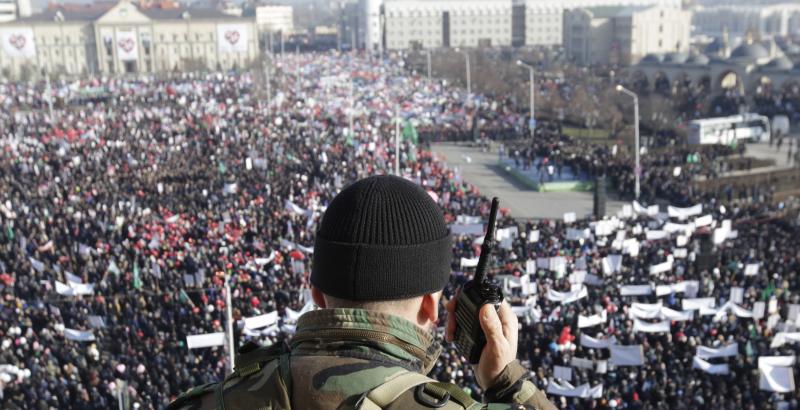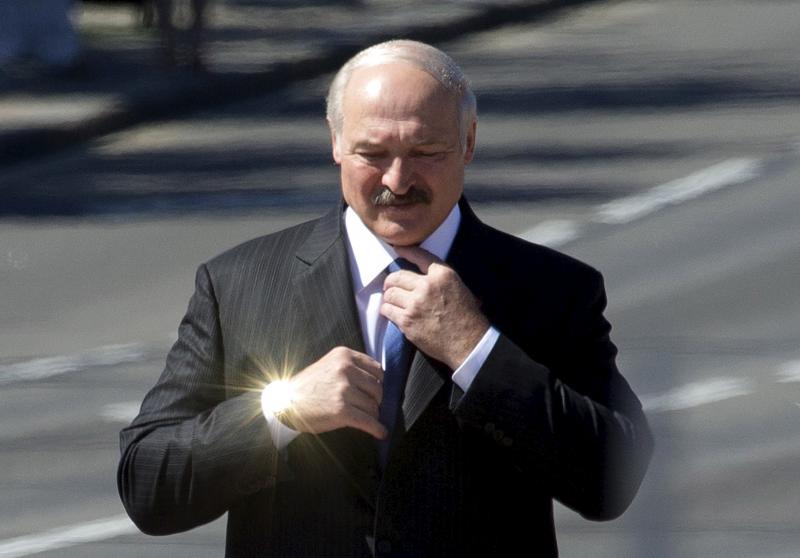PBS: Escaping Eritrea … [Read More...] about ካብ ውሽጢ ቤት ማእሰርታት ኤርትራ
More Putin than Putin
Ramzan Kadyrov Tries to Take Center Stage

Kadyrov is an outsized personality and has courted controversy since he became leader of Russia’s Chechen Republic in 2007 at the age of 30, succeeding his assassinated father. He is famous for his lavish lifestyle, his menagerie of tigers and ostriches, and his boastful and violent threats against his enemies, who range from human rights activists to Islamist rebels to the editors of Charlie Hebdo magazine.

Kadyrov’s years of running Chechnya as a personal fiefdom have depended on his close relationship with Putin. As long as Kadyrov was the main guarantor of peace in Chechnya, Putin would let him be. But the balance in the relationship between Moscow and Grozny, the capital city in which Kadyrov is ensconced, has changed. Busy tightening their control over every aspect of Russian life, Moscow’s elite have been increasingly looking to subordinate Chechnya to Putin and, especially, to Russia’s bureaucratic and administrative apparatus. For too long, the argument goes, Kadyrov has been allowed to run things his own way. Their desire to rein him in reached new heights last year, after Kadyrov and the people around him were blamed for the murder of Boris Nemtsov, the liberal grandee. As the gory details were released, Moscow worried that the Chechen leader was out of control.
A decade or so ago, the goal of making Chechnya a region like all others in Russia would have seemed insane. Routine administration was simply impossible in a region devastated by two wars and a prolonged period of anarchy, during which a large proportion of the male population had taken up arms against federal Russian armed forces. But the republic has changed immensely in the last decade. Its citizens started enjoying peace and consumerism. And they know that Kadyrov is more beholden to the Russian state. They are less afraid, and less tempted to disappear into the hills and join the jihadists of the radical Islamist Caucasus Emirate, or its new rival in the region, the Islamic State (ISIS). In short, a decade of peace has reduced Kadyrov’s status at home and reduced him to the level of the heads of Russia’s other regions.

And that brings us back to Kadyrov’s loud demarche in the silence of Russia’s long winter holidays. His value in the Russian system has declined, and he is looking for ways to make up for his loss in power as a regional politician by asserting himself as a figure on the national stage. To that end, his denunciations of “Western sympathizers” were heard with enthusiasm by Russians who believe that enemies—both Western liberals and Islamist radicals—are trying to destroy Russia, and want to see Moscow take decisive action.
In the battle against Islamists, Kadyrov insists, Chechnya is key. The region, as he told the newspaper Izvestia, has been “stained by a bloody war.” It deserves special care and attention—and perhaps even some thanks for helping repel ISIS invaders who are knocking at Russia’s gates. Meanwhile, in the battle against Western liberals, Kadyrov, a real patriot, is not afraid to speak the truth.
With his remarks, the Chechen leader got the result he wanted: condemnation from the usual suspects, including an opposition deputy in Krasnoyarsk, journalists, and human rights defenders—in short, those of whom the public and the Putin regime is already suspicious. And so, at a moment when the Russian governmental system is near a breaking point, unpleasant conversations about the leader of Chechnya can be postponed.
With his latest gambit, Kadyrov is unwittingly replicating the model of Alexander Lukashenko of the 1990s and early 2000s.After he was first elected president of Belarus in 1994, Lukashenko established a kind of critical alternative to Boris Yeltsin’s Russia. As Russia’s liberal intelligentsia looked to Europe, a large portion of the Russian population looked to Belarus. Lukashenko gave Belarus a national anthem and a coat of arms that were similar to the old Soviet ones. He did not close a single factory or permit predatory privatization. He continued to produce Belarussian television sets, retained the death penalty and criminal charges for sodomy, dealt ruthlessly with domestic opponents, and flouted Western opinion. While so-called degenerate art went on display in Moscow, Belarus exhibited only patriotic art.
All this made the Belarussian leader, in the eyes of many Russians, the perfect antidote to a weakening Yeltsin, and for a while, an example to the newly elected Putin. For a time, there was even talk of plans to move Lukashenko to Moscow where he could be head of a newly formed “union state” of Belarus and Russia.

However, Lukashenko’s star fell quickly in Russia. The image of Belarus as a happier version of Russia faded as the country devalued its currency and salaries stayed low. More recently, Lukashenko was accused of making profits on reselling Russian oil, transforming Belarus into a conduit for contraband seafood, and being too friendly with the “junta” that has taken over Ukraine. But the main sin of this so-called patriot is that, rather than submitting to Moscow’s control, he remained independent.
Lukashenko’s decline left vacant the pedestal of Soviet nostalgia; now the head of Chechnya has clambered his way to the top of it. For all of Kadyrov’s obvious shortcomings—his ethnicity, his background as a rebel fighter, and his reputation for capriciousness and vast corruption—he has one clear advantage over Lukashenko: his republic is actually in the Russian Federation, and he is a bona fide #patriotofRussia, the hashtag used on and offline by Kadyrov’s supporters, including several Russian politicians and national celebrities, both in Chechnya and elsewhere in Russia.In Russia, a vocal segment of the population is impatient to hear the words the government does not dare to say and to see the actions it fails to take. The authorities hold back and at least pretend to represent all citizens. They need to keep relations with foreign nations, so their words must be at least somewhat carefully expressed. Those are problems that informal alternative centers of power don’t have.
